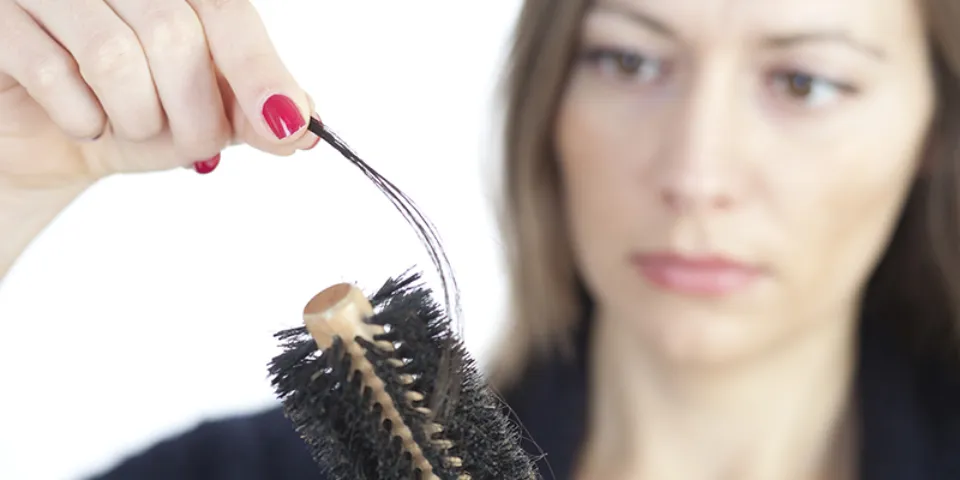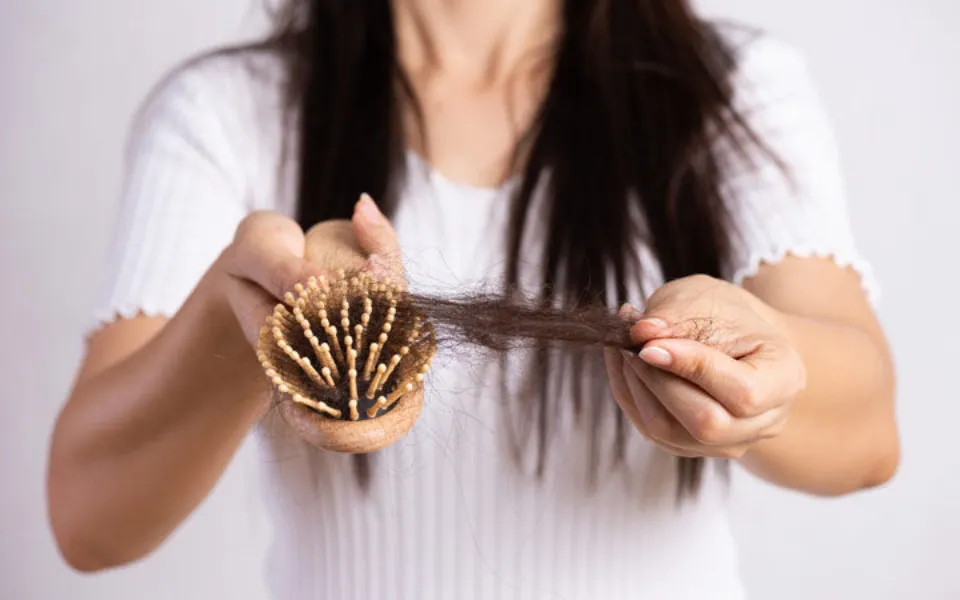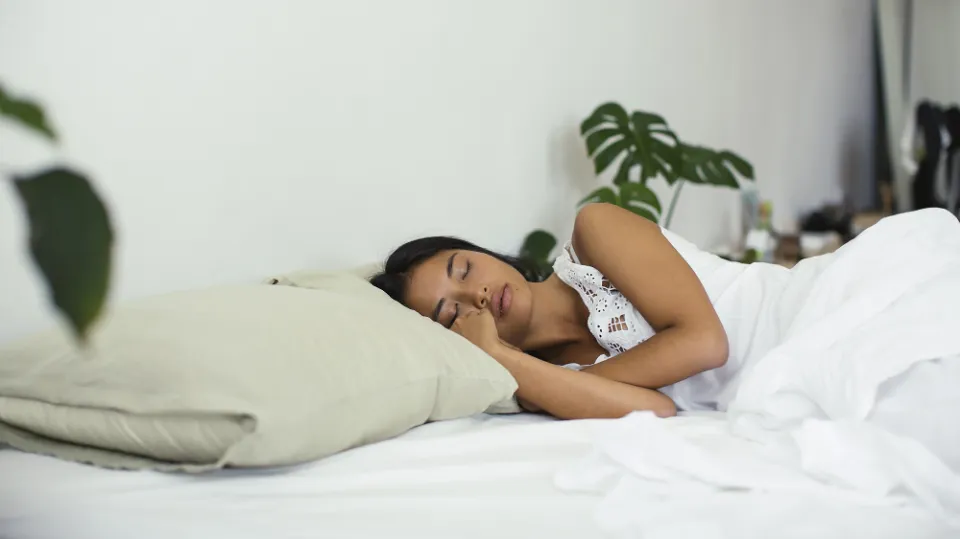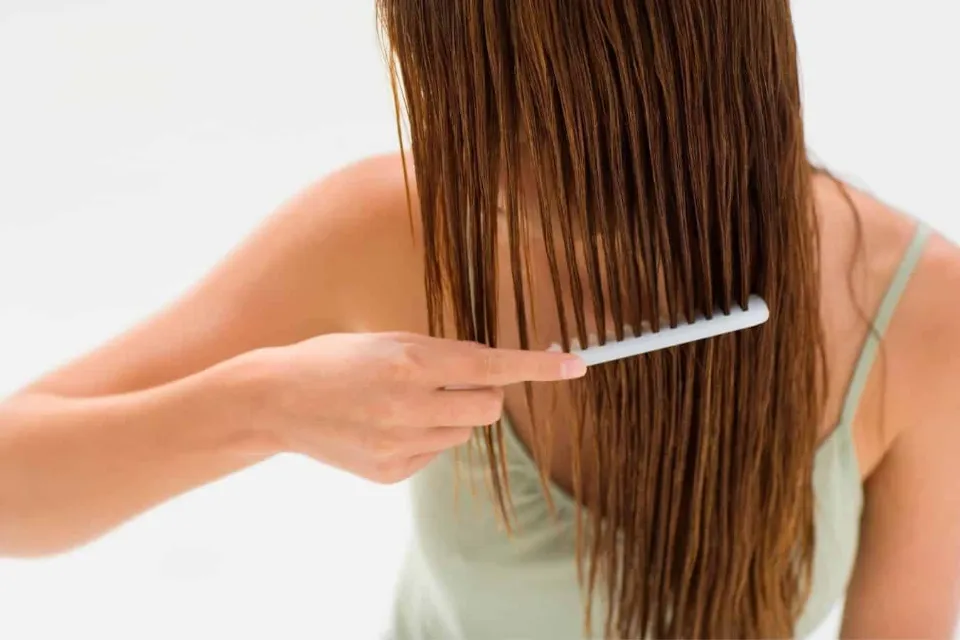Can low iron cause hair loss? Yes, there can be a link between hair loss and iron deficiency.
Low thyroid function and iron deficiency are two of the most typical non-hereditary causes of hair loss.
For all the information you require regarding the connection between iron deficiency and hair loss, continue reading.
Can Low Iron Cause Hair Loss?
Yes. Haemoglobin, a protein found in red blood cells, is made by your body with the assistance of iron.
It delivers oxygen to your body’s cells, assisting in their growth and repair.
Cells in your body that promote hair growth fall under this category.
You Might Also Like:
- Does Cancer Cause Hair Loss?
- Does Alcohol Cause Hair Loss?
- Can Hair Dye Cause Hair Loss?
- Does Mounjaro Cause Hair Loss?
- Does Creatine Cause Hair Loss?
- Does Dandruff Cause Hair Loss?
- Can Depression Cause Hair Loss?
- Does Minoxidil Cause Hair Loss?
- Does Hard Water Cause Hair Loss?
- Does Dry Shampoo Cause Hair Loss?
- Does Collagen Help With Hair Loss?
- Does Wearing a Hat Cause Hair Loss?
Why Does Iron Deficiency Cause Hair Loss?

Most doctors concur that a seriously low level of iron in the blood can affect the physiological process of hair follicles, harming them and causing hair loss, despite the fact that various studies have produced contradictory evidence regarding the link between iron deficiency and hair loss.
Iron deficiency can potentially trigger a type of hair loss called telogen effluvium, where intense physical stress or illness causes widespread thinning of the hair in both men and women.
There are numerous types of hair loss, and only a physician can determine the underlying cause by taking into account a number of variables such as general health, genetic history, age, and gender.
How to Treat Iron Deficiency-related Hair Loss?
A blood test that looks for levels of a protein called ferritin will be performed first by your doctor if they suspect iron deficiency anaemia as the cause of your hair loss.
Your doctor will probably advise iron supplements if your ferritin level is low in order to treat it as well as any negative effects it may have had on your body, such as hair loss.
Additionally, your doctor might advise changing your diet to include more iron-rich foods, such as red meat, beans, and nuts, in your diet.
If another condition, such as pregnancy complications, heavy periods, or an issue with iron absorption, is the root of your low iron levels, it must be treated first.
If your low iron levels were the only cause of your hair loss, increasing your iron intake should undo the damage and promote regrowth after a few months.
Will Hair Loss from Iron Deficiency Grow Back?
Yes. Most hair loss due to an iron deficiency can be reversed.
If you believe that hair loss you’ve been experiencing may be the result of a lack of iron, consult Dr. Consult with your doctor, Piliang advises. If you have low iron levels, a blood test can reveal this.
You might want to use a product like minoxidil that promotes hair growth in addition to taking supplements and altering your diet.
How to Prevent Iron Deficiency and Hair Loss?
Iron deficiency anemia is frequently caused by other factors besides diet. Anaemia caused by an iron deficiency is frequently accompanied by conditions like stomach ulcers or bodily bleeding from heavy periods. When a woman is pregnant, iron deficiency can occur because the body needs more iron for the developing fetus.
By taking care of your body and overall health, you can take some precautions to avoid both an iron deficiency and potential hair loss.
Healthy, Balanced Diet

One of the best and simplest ways to enhance and maintain your health is to make sure your diet includes everything your body needs to survive and function.
A healthy and balanced diet typically consists of eating five portions or more of fruit and vegetables each day and making sure your meals include a sufficient amount of starchy foods like bread, potatoes, pasta, rice, and other grains.
Vitamins are abundant in animal proteins like fish, eggs, meat, and dairy, but you should try to limit your consumption of red and processed meat.
Particularly excellent sources of iron include beans and nuts. It’s best to treat processed foods like cakes, chocolate, and biscuits like a treat and consume them in moderation if you do consume them.
Vitamins
You probably don’t need to take additional vitamins if you are eating a healthy, well-balanced diet because your body should be getting all the nutrients it requires.
However, taking supplements can be a good way to maintain healthy vitamin levels if you are deficient in specific vitamins and minerals, such as iron. Although there is only weak scientific evidence to support this, some people find that taking certain vitamins helps with hair loss.
Hair Care Routine
By adopting a good hair care routine and taking care of your hair, you can reduce the effects of hair loss.
There are numerous shampoos and treatments available that promise to reduce hair loss and promote regrowth, but the evidence for these claims is sparse.
Final Words: Can Low Iron Cause Hair Loss
Although the links between iron deficiency anaemia and hair loss still aren’t fully understood, we do know that ensuring your body has all the essential nutrients it needs plays a big role in keeping your hair healthy.
The first thing you should do if you’re worried about hair loss, which affects both men and women, is make an appointment with a doctor to go over your options.
FAQs
How Long Iron Tablets Take to Stop Hair Loss?
It typically takes several months and occasionally even longer for iron supplements to start working.
Will Hair Loss from Low Iron Grow Back?
When the underlying iron deficiency is treated, hair that has fallen out due to low ferritin should regrow.
How Much Iron Should I Take for Hair Loss?
According to the consensus of the majority of researchers, our body needs 50 to 70 nanograms of ferritin per milliliter to regenerate hair.




